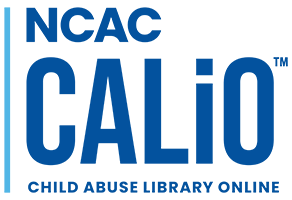Frequently Asked Questions
Q: Where is the login to access CALiO™'s subscription based resources?
A: The login box is located at the top right corner of the CALiO™ homepage.
Q: How can I set up a CALiO™ account?
A. Professional staff from children's advocacy centers based in the United States and their multidisciplinary team members, State Chapters within the United States and its territories, Tribal Nations within the borders of the United States, and the Victims of Child Abuse Act (VOCAA) partnerships are eligible for access. Please see our How to Register for a CALiO™ User Account page for the full description of requirements and link to the registration form.
Q: I forgot my username. How can I log in?
A: You may use the email you entered to register for your account.
Q: I forgot my password. How can I get this?
A. OpenAthens will facilitate providing forgotten passwords. The CALiO™ librarians no longer have access to this information in user accounts. Please refer to the OpenAthens Account Management page.
Q: What does it mean when I see the word “Embargo” following a journal title?
A: “Embargo” is imposed by some journal publishers. This means that the articles are not available electronically through this institution’s subscription for a period of time after publication. The embargo period varies among journal publishers and journals. Embargo periods are usually 6 months, 12 months, or 18 months after print publication. Contact the librarians for newer articles.
Q: Is my CALiO™ login also used for the NCAC Virtual Training Center (NCACvtc)?
A. No. The NCACvtc is a separate product from CALiO™ and the logins are different. Anyone may set up an account to access the free online trainings from NCACvtc.

